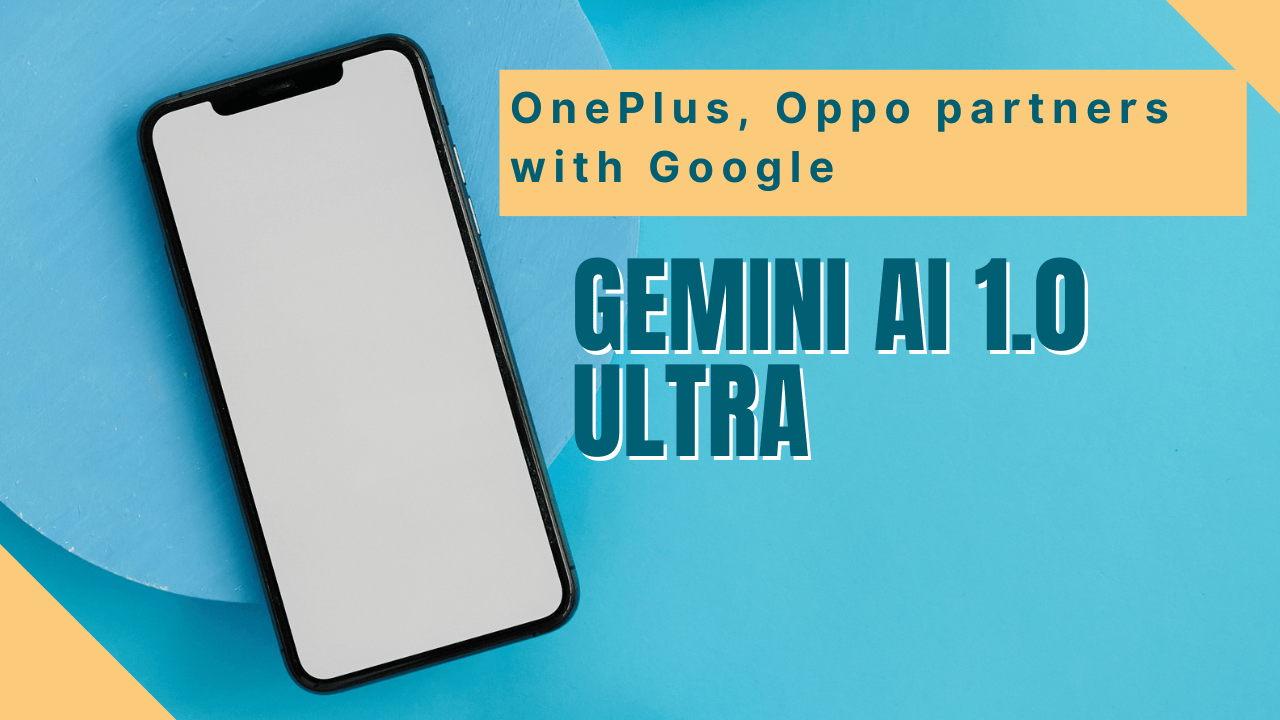OnePlus and Oppo have entered into a partnership for Gemini 1.0 Ultra release. This collaboration aims to integrate AI model, Gemini 1.0 Ultra, into their devices later this year. This initiative marks a strategic effort by OnePlus and Oppo to be the pioneers in launching features based on the Gemini Ultra platform.
Thank you for reading this post, don't forget to subscribe!Partnership Announced for Enhanced AI Capabilities
Gemini, known for its robust AI capabilities, competes directly with OpenAI’s ChatGPT and offers both free and paid tiers, with the Ultra version being the most advanced currently available. The integration of Gemini Ultra into devices by OnePlus and Oppo is set to redefine the standards for AI on smartphones. While the Nano version of Gemini is designed to support on-device AI on most devices running Android 14, Gemini Ultra extends far beyond, targeting highly complex tasks. When will OnePlus and Oppo deploy this within their devices is yet to be disclosed.

Google Gemini Ultra: A New Standard in Smartphone AI
In recent communications to the press, the two companies mentioned their achievement regarding multiple generative AI models to users in China. These developments have empowered over ten million users of devices such as the Oppo Find X7 and OnePlus 12 to utilize AI-generated content seamlessly on the go. Furthermore, OnePlus has recently unveiled the AI eraser feature, their first based on generative AI technology for select devices outside China, confirming the use of Oppo’s proprietary AndesGPT LLM.
Expanding AI Use in Future Devices
The technical specifics will be discussed at a later stage; however, it has been shared that future devices from Oppo and OnePlus will harness AI to perform a variety of functions. These include summarizing news articles, and audio, and creating new social media content, showcasing the versatile applications of AI in enhancing user experiences.
Competitive Edge Over Samsung?
With this move, OnePlus and Oppo are strategically positioning themselves to challenge Samsung’s recent dominance in the AI-equipped smartphone market. Earlier this year, Samsung took a significant leap forward with its Galaxy AI-powered S24 series, thanks to a strategic partnership that allows access to Gemini Pro and other AI features. By opting for Gemini Ultra, OnePlus and Oppo are not only catching up but potentially surpassing Samsung in terms of AI capability.
Conclusion
In conclusion, the partnership between OnePlus and Oppo signifies a promising leap towards more intelligent and capable smartphones. As these companies work towards integrating Gemini Ultra into their devices, the potential to revolutionise how smartphones are used for everyday tasks and complex processing is immense. Keep an eye on this space for more updates, such as these.
FAQ
1. What is Gemini 1.0 Ultra, and how does it differ from previous AI models?
Gemini 1.0 Ultra is the most advanced AI model, previously known as Bard. It is designed to handle highly complex tasks and is more powerful than earlier versions such as Gemini Pro and Nano. Unlike its predecessors, Gemini Ultra offers enhanced capabilities, ideal for a range of applications, from AI-driven content creation to complex data analysis.
2. Which devices from OnePlus and Oppo will support Gemini 1.0 Ultra?
While specific device models have not been announced, it is expected that future flagship devices from both OnePlus and Oppo will be equipped with Gemini 1.0 Ultra capabilities. Past models like the Oppo Find X7 and OnePlus 12 have already received AI features, indicating that upcoming high-end models will likely include support for Gemini Ultra.
3. What benefits does Gemini 1.0 Ultra offer to the average smartphone user?
Gemini 1.0 Ultra can enhance the smartphone experience by enabling more intelligent and responsive AI features. For the average user, this means improved voice assistants, more accurate photo editing tools, smarter content recommendations, and real-time language translation, among other benefits.

